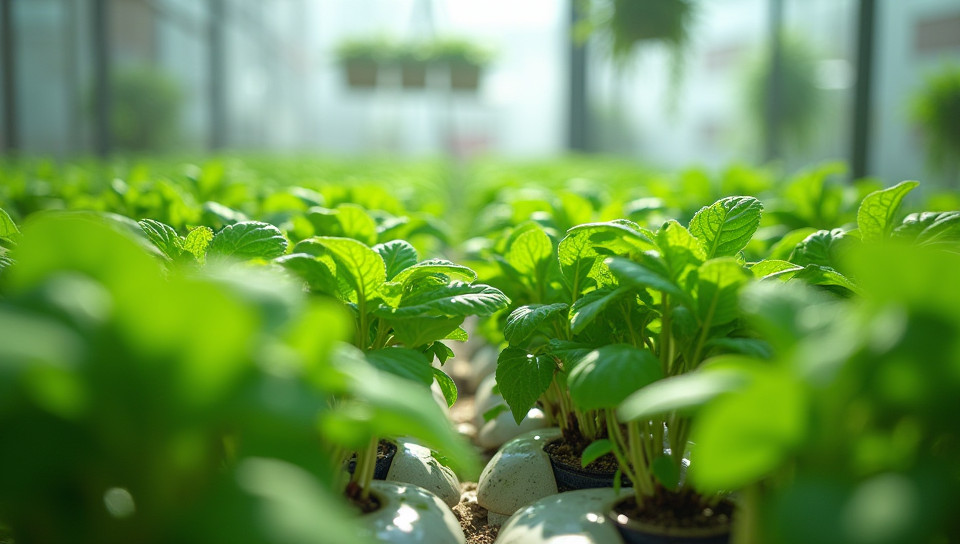Hydroponics uses nutrient-rich solutions for plant growth 80%

The Future of Sustainable Agriculture: Unlocking the Potential of Hydroponics
As the world grapples with the challenges of climate change, soil degradation, and water scarcity, innovative farming methods are becoming increasingly essential for ensuring global food security. One such method that is gaining traction is hydroponics – a soilless cultivation technique that utilizes nutrient-rich solutions to promote plant growth.
What is Hydroponics?
Hydroponics is an agricultural method that grows plants in a controlled environment where the roots are suspended in a nutrient-rich solution rather than soil. This approach allows for precise control over the nutrients and pH levels, resulting in faster growth rates, increased yields, and reduced water consumption.
Benefits of Hydroponics
The benefits of hydroponics extend far beyond traditional farming methods:
- Reduced water usage: Hydroponic systems can conserve up to 90% of water compared to traditional farming.
- Increased crop yields: Hydroponics allows for faster growth rates and increased yields, making it an attractive option for commercial farmers.
- Improved crop quality: By controlling the nutrient levels and pH, hydroponics enables growers to produce higher-quality crops with improved flavor and texture.
- Reduced land use: Hydroponics can be practiced in small spaces, such as rooftops or indoor facilities, making it an ideal solution for urban areas.
How Does Hydroponics Work?
Hydroponic systems typically consist of three main components:
- The nutrient-rich solution that provides essential nutrients to the plants
- A growing medium that supports plant growth (such as rockwool or coco coir)
- An irrigation system that delivers the nutrient solution to the roots
The Future of Hydroponics
As technology advances, hydroponics is poised to become an even more efficient and sustainable method of food production. With the help of precision agriculture tools, hydroponic systems can be optimized for maximum yields while minimizing waste and environmental impact.
In conclusion, hydroponics has the potential to revolutionize the way we grow food, providing a sustainable solution that addresses some of the most pressing challenges facing our planet today. By harnessing the power of nutrient-rich solutions, we can create a brighter future for generations to come – one crop at a time.
- Created by: Sophia Perez
- Created at: Feb. 1, 2025, 2:09 p.m.
- ID: 19851






